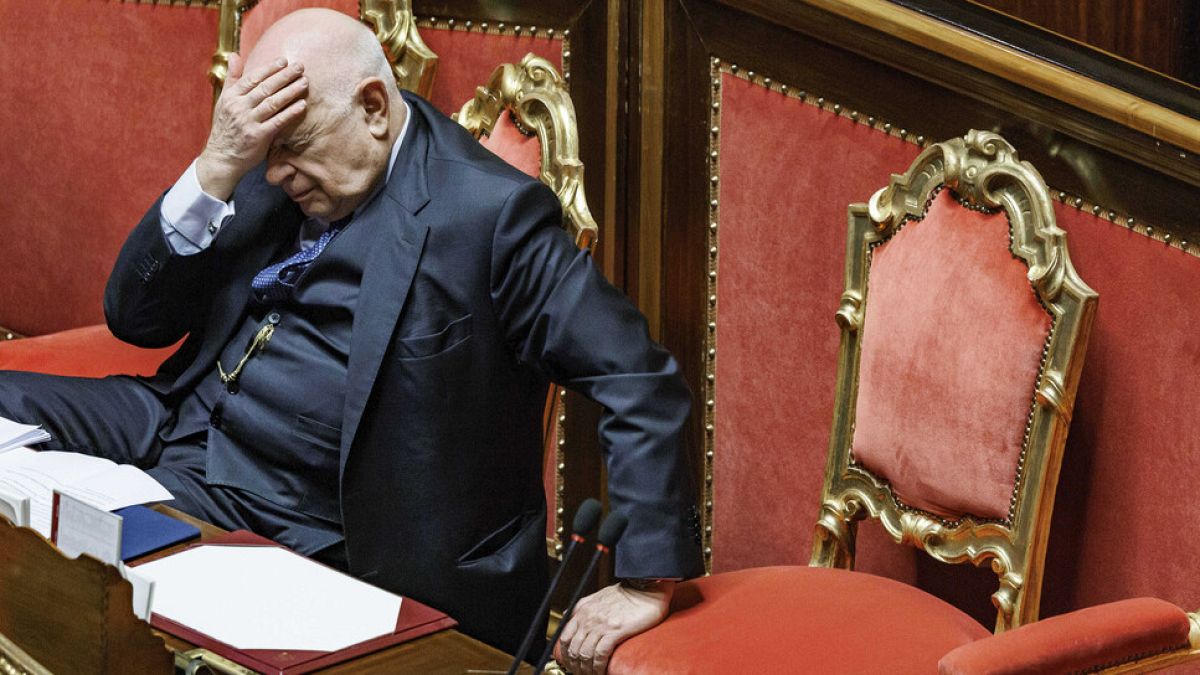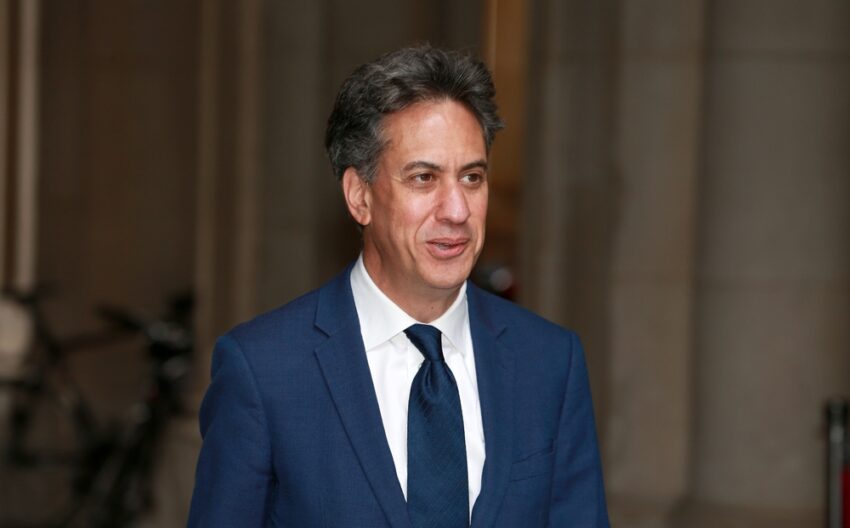Keir Starmer’s victory party turns sour
Britain's new prime minister has suffered a turbulent start to his premiership.

LIVERPOOL, England — Britain’s new prime minister should be taking the stage for the mother of all victory laps. Instead, he’s just trying to keep the show on the road.
Keir Starmer will address his party’s annual conference Tuesday, less than three months after delivering an extraordinary electoral triumph. Starmer’s center-left Labour Party returned to power in July after 14 years of opposition, taking hundreds of seats from the Conservatives in a landslide election win.
Starmer had long plotted a steady and ruthless course to Downing Street. After initially standing on a platform of party unity, he brutally defanged the Labour left in opposition and then focused on building a reputation for economic responsibility.
On becoming prime minister, he pledged to turn the page on years of Tory chaos and “restore service and respect to politics.” His party rejoiced.
But Starmer’s first months in office have been far from plain sailing.
His government’s first big spending decision — a welfare cut for the elderly — has gone down spectacularly badly, while he has faced accusations of cronyism and hypocrisy amid a vicious briefing war between some of his closest allies in Downing Street.
The early release of thousands of prisoners from Britain’s overcrowded jails was deemed necessary, but hardly popular with the wider public. In a matter of weeks, Starmer’s poll ratings have fallen through the floor.
Now the party faithful assembled in Liverpool for their first big conference since taking power want him to turn the page on this shaky start and show the country he knows how to run an effective government.
“There’s no message discipline, there’s no grid discipline, there’s no grip in No. 10,” complained one Whitehall official, granted anonymity like others in this story to speak frankly.
“I don’t really even know what we’re going do next week. It doesn’t feel good at all.”
Rained-on parade
Arriving in Liverpool on the back of such an enormous victory — the very moment Labour should be at its strongest — ministers have instead found themselves fending off endless questions about dysfunction at the heart of government.
A drip-drip of stories about lavish gifts accepted by members of the Cabinet from donor Waheed Alli, including thousands of pounds’ worth of clothes for Starmer and his wife, comes in the wake of criticism over Labour’s appointment of political supporters to top civil service jobs.

Against this unedifying backdrop, a BBC report last week that Starmer’s chief of staff Sue Gray is being paid far more than her predecessors exploded like a bomb — the ferocity of the briefing by members of Downing Street against one of their own proving as sensational as the substance of the story.
All this, together with continuing anger over the government’s decision to remove a universal cold-weather payment to pensioners, has made for a troubled atmosphere on rain-drenched Merseyside.
“It’s not exactly 1997,” quipped one newly-elected MP, contrasting their tentative entry to government with the jubilation that greeted Tony Blair’s first election win.
A government aide confessed they were “deeply pissed off,” both at the handling of the donations story — already dubbed “freebie-gate” in the British press — and at the stream of damaging leaks to the press. “It’s taken us 14 years to get here and a few people are fucking it up.”
A Cabinet minister added that there was a hint of misogyny in the internal potshots at Gray, “something a lot of older women in positions of power face.”
The whiff of scandal around personal donations to members of the Cabinet arguably rankles most of all, given that in opposition Starmer was highly outspoken on Tory sleaze. In power he faces accusations his government is falling into some of the same traps.
Alex Thomas, program director at the Institute for Government think tank, said Starmer “clearly does need to get a grip on some of the briefing — in our system that sort of authority only really ever flows from the prime minister.”
Another reason some suspect these stories have gained such traction is that the government currently lacks a clear domestic agenda.
The same Whitehall official quoted at the top of the story said: “When people look back on the first 100 days [of the new government], they will just remember prisoners being let out, worrying about money … Still nobody really knows what Starmerism is.”
Starmer’s defenders say the answer lies in his “five missions,” the policy platform on which all government ministers have been asked to deliver.

Josh Simons, a Labour MP close to Starmer’s team and former director of influential think tank Labour Together, said: “Keir thinks that doing government well means taking the missions seriously — it is absolutely at the heart of the project of this government.”
Simons added that “there can’t be enough” promotion of the missions, hinting at the feeling among some in government that this has been somewhat missing since July 4.
The same Cabinet minister cited above said some of Labour’s most radical early reforms, such as new laws to re-nationalize Britain’s rail network and new rights for renters, have not been trumpeted loudly enough by No. 10.
Reasons to be careful
The temptation for Labour loyalists is to shrug off Starmer’s early travails as a storm in a teacup, virtually irrelevant when Labour enjoys such a strong majority at the very beginning of a five-year term in office.
A second government aide compared the bumpy start to the way over-emotional football fans see their teams’ prospects. “When they have a couple of losses, everyone piles in and calls them shit — but it can all change after a few wins.”
Yet Starmer’s position may be more perilous than it seems.
Luke Tryl, director of polling group More in Common, said the flurry of ethics stories had the potential to “really hurt” the prime minister because “part of Starmer’s core appeal was that [the public] saw him as the antidote to [the] sleaze that dogged the last Tory government.”
Crucially, Labour came to power on an historically low share of the national vote, winning a large number of seats with only very narrow majorities.
The average Labour MP now has a majority of 7,000, down from 12,000 at the last election, according to an analysis by the Tony Blair Institute, which points out a swing of 4 per cent against Labour would mean the party loses its majority in 2029.
Furthermore, the British electorate has shown itself to be increasingly volatile over recent years. The party has already taken a hit in polls carried out since the election, with half of voters saying they are disappointed in the Labour government so far.
Anti-politics parties such as Reform UK on the right, and the Green Party on the left, could only benefit from the missteps of recent weeks, Tryl warned.
The Tories, meanwhile, have barely even started the business of opposition, with a new leader not yet chosen to replace the departing Rishi Sunak.
As one Labour MP in a marginal seat remarked grimly: “There’s a very, very narrow path to winning in five years.”
“Government is hard,” shrugged another new MP, sipping beer at a less-than-celebratory conference drinks event. “Who knew?”
What's Your Reaction?




















































